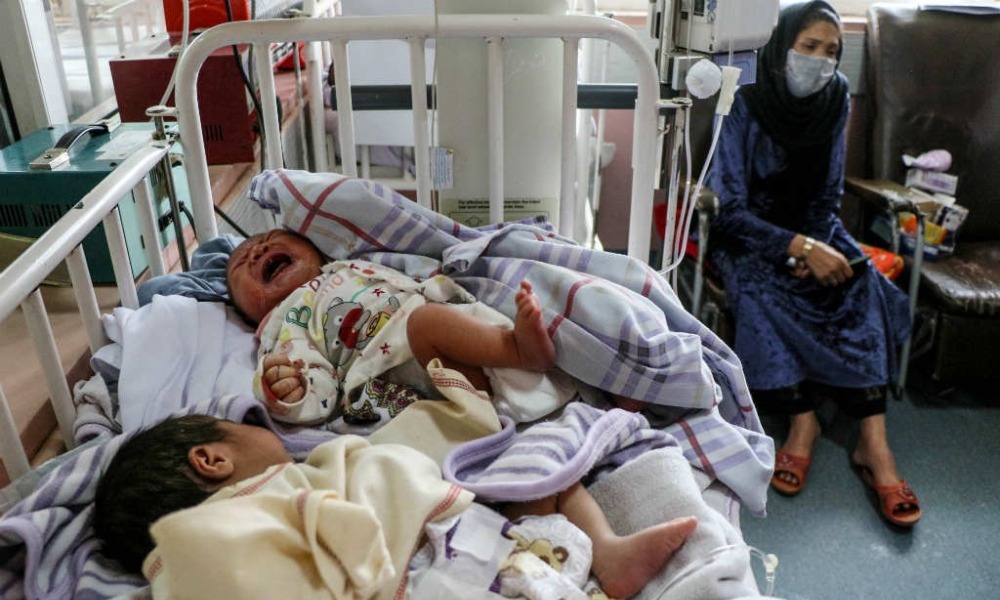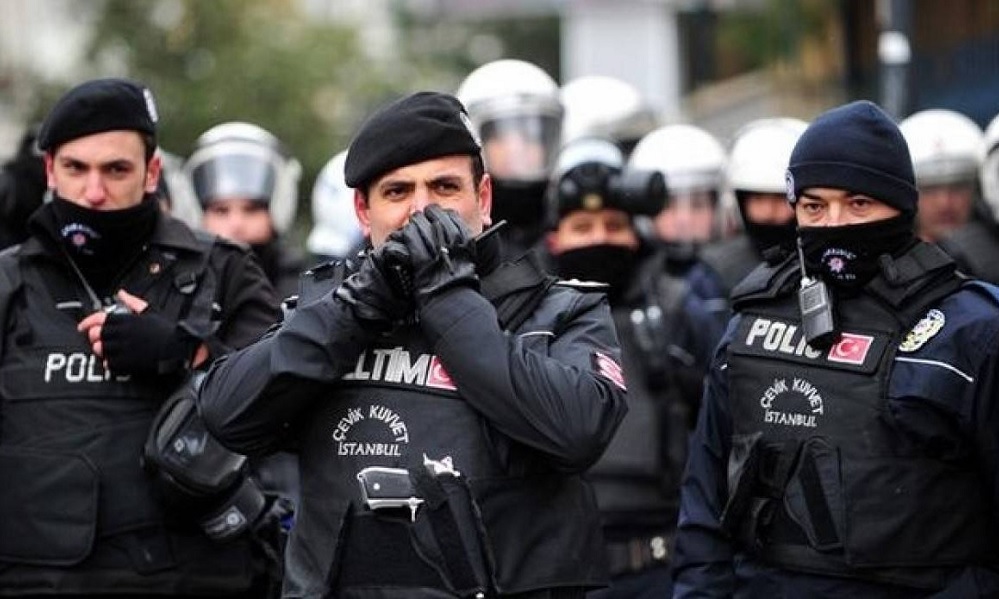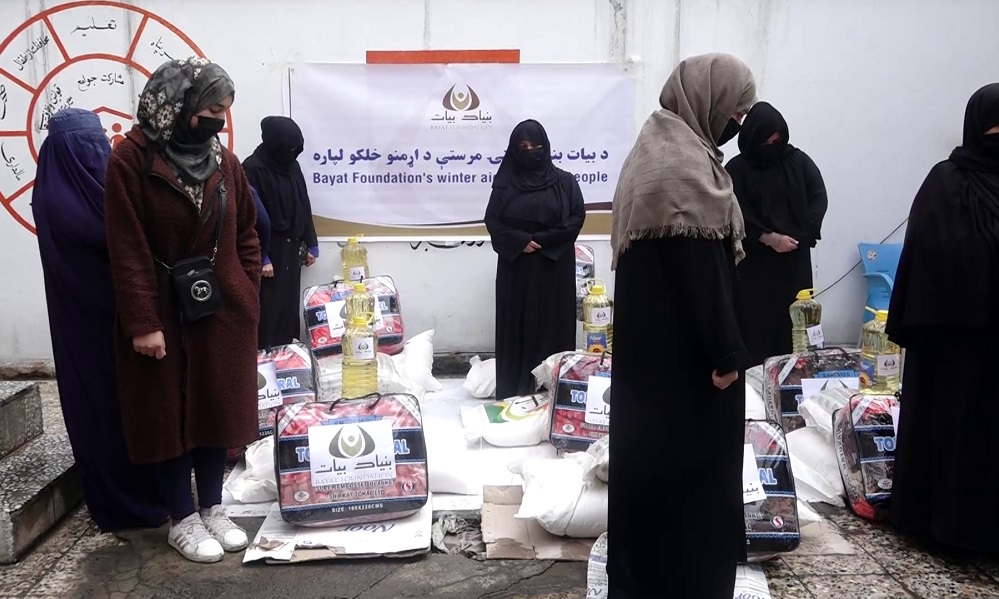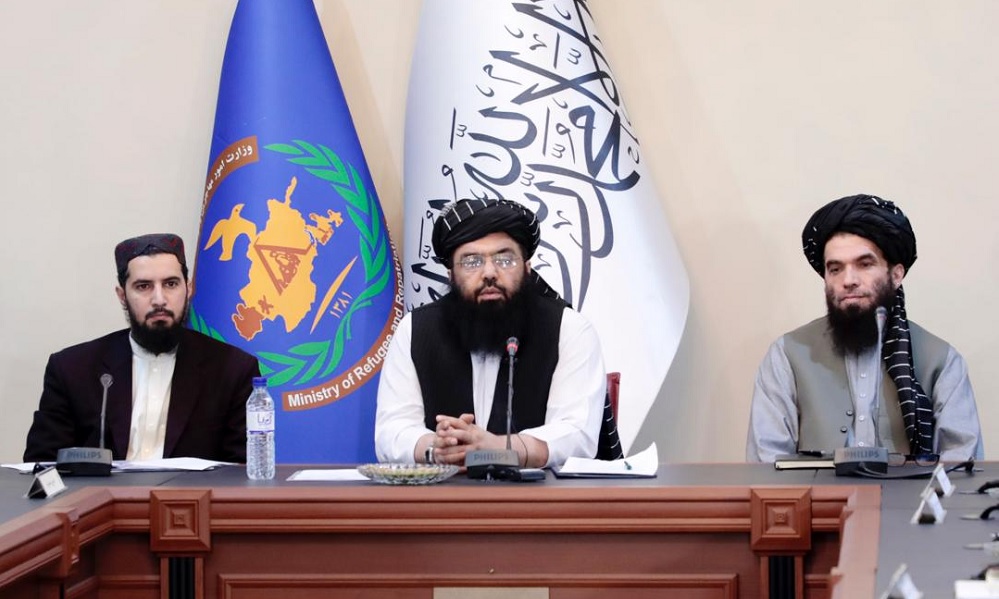Latest News
Barchi residents look back on maternity ward attack, appeal to MSF to return

It has been a year since the deadly attack on the maternity ward in a Dasht-e Barchi hospital in Kabul, a year filled with memories of the horror of the attack where gunmen cold-bloodedly gunned down mothers and mothers-to-be, staff and children in a four-hour siege.
But for the people of Dasht-e-Barchi, the attack at the Médecins Sans Frontières (MSF) run maternity ward, and the 24 people killed, including mothers and mothers-to-be, will never be forgotten.
For some local residents, MSF’s decision soon after the attack to withdraw from the hospital left them “shocked and hopeless”.
On Tuesday, Dr Isabelle Defourny, MSF director of operations, said: “Some weeks later, we had to make the difficult choice to withdraw from Dasht-e-Barchi. We knew we would leave behind huge needs.
“For many women in the neighbourhood, our maternity ward was a much-needed resource; 16,000 deliveries had taken place there in 2019 alone. But we couldn’t continue our activity after what happened,” Defourny said.
Thanking MSF for their services at the hospital over the years, one resident in the area, Ahmad Tamim, said on Wednesday: “People will never forget MSF ‘s generous service in its Dasht-e Barchi project and as well the tragic closure of the hospital that left everyone shocked, helpless and hopeless.
“All the people wished you would have continued your assistance in their slum and ghetto area after the attack, but unfortunately your abandonment became another sorrow for them,” he said.
For one MSF employee, Sayed Jawed Hashimi, who hid in a safe room during the attack, the scenes will haunt him for years to come.
“The worst memory ever! And the hardest four hours that we spent in the safe room, under shooting, bombing, and the dead bodies (mothers, babies, care takers, our colleague). What we saw after getting out of safe rooms, was like a nightmare, which takes several years to forget,” he told Ariana News.
Another resident of the area Omulbanin Nabizada, said simply to MSF: “Wish you could stay.”
Yet another appealed to them to resume work in their predominantly Shiite Hazara area.
Mystafa Asghari said: “Please resume your activities.”
Asila Mohammad said to Ariana News: “MSF should resume work in Kabul [in Dasht-e-Barchi] in order to save more mothers and children,” while Asadullah Azimi said: “We were victims and we were deprived of your cooperation for a crime others committed.”
Sakina Amiry, an Afghan journalist, stated: “After the terrorist attack the people have been in desperate need of health services. The hundred-bed hospital [which housed MSF’s maternity ward] now limits services,” she said.
“The maternity ward now only handles normal deliveries. MSF doctors please help those who even do not have bread to eat,” she said.
The maternity ward attack was carried out in the same area that was battered on Saturday in a deadly bombing against a girls school that killed at least 87 people, mostly teenage girls.
But, like many attacks, no group has claimed responsibility for this tragedy.
AFP reported Wednesday that few people in the area expect authorities to track down the perpetrators of the latest carnage — or prevent similar massacres in the future.
The Afghan government has continued to blame the Taliban for the maternity ward attack, but interior ministry spokesman Tareq Arian says no arrests were ever made.
The US, however, pinned the blame on the Islamic State group (Daesh).
“No evidence was publicly brought to support those claims,” Defourny told AFP.
In a statement issued on Tuesday, Defourny said that while they didn’t think the MSF was specifically targeted, “the first targets of this attack were pregnant women and women in labour in a maternity ward which we ran.”
“We know that the attackers directly headed to the maternity ward and killed the pregnant women and women in labour who were present there. Two children who had come for routine vaccination and another caretaker were also shot dead in the attack. Healthcare staff were also killed and injured,” she said.
“We can’t work in an environment where patients and medical staff are targeted, and where we can’t prevent such a massacre from happening again.
“This attack clearly targeted pregnant women in a maternity ward run by MSF. And the fact-finding exercise confirmed that none of the different parties with whom we have relations in Afghanistan gave us specific alerts on it.
“Our will to continue working in Afghanistan is motivated by the dire medical needs of the Afghan people… but can only continue if minimum conditions of safety are ensured…,” she said.
“When MSF returned to Afghanistan 12 years ago – after we had withdrawn in 2004 following the killing of five of our colleagues – we knew it was one of the most dangerous countries to work in. At that time, our analysis was that it was possible to craft a safe working space for us, by renewing our engagement with all the different parties involved.
“Since then, after the attack on our hospital in Kunduz, and the one on the Dasht-e-Barchi maternity ward, we have to admit that this wasn’t enough. In these two attacks, 66 people were killed – by far the highest number of deaths in our programmes around the world over the last six years.
“Our organisation can’t accept the idea of integrating the loss of our staff or of the patients we treat as part of our work. We maintain our freedom to withdraw and stop our activities when we think that the risk of such severe attacks repeating themselves is too great,” she said.
Latest News
Turkish intelligence captures a Daesh member near the Durand Line

Turkish intelligence agents have captured a senior member of Daesh near the Durand Line, reportedly preventing planned suicide attacks in Turkey and other countries, according to Turkey’s state-run Anadolu Agency on Monday.
The suspect, identified as Mehmet Goren, is a Turkish citizen. He was apprehended during a covert operation and transferred to Turkey. Details on the timing of the operation or the involvement of Afghan and Pakistani authorities were not disclosed.
According to the report, Goren had risen through the ranks of Daesh and was allegedly tasked with carrying out suicide bombings in Turkey, Pakistan, Afghanistan, and Europe.
Daesh has a history of deadly attacks in Turkey, including the January 1, 2017 shooting at an Istanbul nightclub that killed 39 people.
Anadolu Agency reported that Goren’s arrest also provided intelligence on the group’s recruitment strategies and planned activities.
Latest News
Dozens of needy families in Kabul receive winter aid from Bayat Foundation

Dozens of needy families in Kabul’s fifth district have received essential winter assistance from the Bayat Foundation, as part of ongoing efforts to ease hardship during the cold season and worsening economic conditions.
According to foundation officials, the aid package includes staple food items such as flour, rice, and cooking oil, along with warm blankets to help families cope with freezing temperatures. Haji Mohammad Ismail, Deputy Head of Bayat Foundation, said the distribution began in Kabul and will soon be expanded to other provinces.
“Our assistance includes flour, rice, cooking oil, and blankets,” Ismail said. “Today, we started distributing these items in Kabul’s fifth district, and God willing, the aid will reach other provinces in the near future.”
Afghanistan continues to face widespread poverty, unemployment, and food insecurity, with many families struggling to meet basic needs, particularly during winter when access to work and heating becomes more difficult.Humanitarian organizations and charitable foundations have stepped up relief efforts to support those most affected.
Beneficiaries welcomed the assistance, describing it as a lifeline. “May God bless you for helping the poor. We had nothing and no work,” said one recipient. Another added, “Thank you for your help. Our flour was almost finished.”
Bayat Foundation officials stressed that winter aid distributions will continue in Kabul and other provinces in the coming days, as part of their broader commitment to supporting needy families across the country.
Latest News
Nearly seven million Afghan refugees return home since Islamic Emirate’s takeover

Since the Islamic Emirate came to power, approximately 6.8 million Afghans have returned home, either voluntarily or forcibly, from neighboring countries and other nations, according to the Minister of Refugees and Repatriation.
Mawlawi Abdul Kabir, speaking at a meeting on finalizing a draft plan for a permanent migration solution in Afghanistan, added that 1.3 million Afghans have been internally displaced due to natural disasters during the same period.
With winter approaching, widespread poverty and severe cold are threatening thousands of lives. Meanwhile, the forced expulsion of Afghan migrants from neighboring countries, particularly Iran and Pakistan, continues.
The Islamic Emirate has repeatedly urged neighboring states to allow migrants to return voluntarily. According to UNHCR, over two million Afghans have returned from Iran and Pakistan since the start of 2025.
-

 Latest News3 days ago
Latest News3 days agoAfghan border forces prevent illegal entry of hundreds into Iran
-

 Latest News3 days ago
Latest News3 days agoPakistan summons Afghan diplomat over deadly attack in North Waziristan
-

 Latest News2 days ago
Latest News2 days agoAfghan health minister calls for medical cooperation between Kabul and New Delhi
-

 Latest News1 day ago
Latest News1 day agoAfghanistan signs 30-year deal for marble mining in Daikundi
-

 Latest News3 days ago
Latest News3 days agoJapan allocates nearly $20 million in humanitarian aid for Afghanistan
-

 Latest News2 days ago
Latest News2 days agoKarzai urges reopening of girls’ schools and universities for Afghanistan’s bright future
-

 Health5 days ago
Health5 days agoAfghanistan seeks India’s support in standardizing traditional medicine
-

 World5 days ago
World5 days agoUS readies new Russia sanctions if Putin rejects peace deal, Bloomberg News reports
























